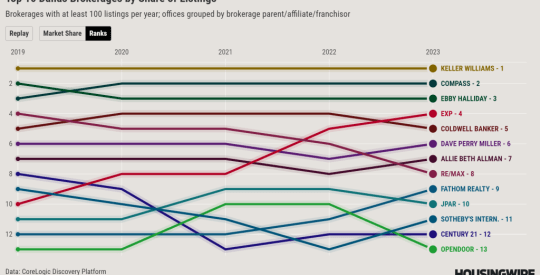As we roll the 2011 calendar over to February — already?— outcomes of hand-to-hand legal combat in courtrooms across the nation over the sprawling foreclosure mess are continuing to unfold. Early this year, a state supreme court case out of Massachusetts called Ibanez managed to forever alter the meaning associated with one of the world’s most famous electric guitar makers.
Innocent music instruments aside, a new ruling out of California in the past week has the potential to be every bit as important: Aceves v. U.S. Bank. HousingWire’s own Kerry Curry broke the story Tuesday afternoon, which really is a Jeckyll and Hyde sort of ruling that has the potential to be one of the nation’s most significant rulings in the foreclosure morass.
Depending on your view, in Aceves, you have something to cheer; and depending on your view, you also have something to fear. Regardless of your view, you have a ruling you can’t ignore, especially in California.
But, as we’ll see, the real bombshell in the Aceves ruling isn’t at all what you might expect.
The majority of the ruling’s text discusses the borrower’s right to pursue potential fraud and so-called promissory estoppel claims against the servicer, as HousingWire's original coverage provides strong detail on. And while the ruling should be instructive on that front to servicers working with borrowers in bankruptcy in California, there is far more buried in the pages of the ruling that is likely to be missed by the media hype.
Instead, the real importance of Aceves is buried on page 14 of a 15-page ruling, in a section called, innocuously enough, “Remaining Claims.”
And in particular, within a single paragraph:
Aceves also takes issue with the notice of default, pointing out that it mistakenly identified Option One as the beneficiary under the deed of trust when U.S. Bank was actually the beneficiary. Although this contention is factually correct, it is of no legal consequence. Aceves did not suffer any prejudice as a result of the error. Nor could she. The notice instructed Aceves to contact Quality Loan Service, the trustee, not Option One, if she wanted ? "[t]o find out the amount you must pay, or arrange for payment to stop the foreclosure, or if your property is in foreclosure for any other reason." The notice also included the address and telephone number for Quality Loan Service, not Option One. Absent prejudice, the error does not warrant relief. (See Knapp v. Doherty (2004) 123 Cal.App.4th 76, 93–94 & fn. 9.)
This is a much larger finding than it might seem, according to at least two California attorneys I spoke with that practice in creditor’s rights. Explaining why, however, requires some unpacking.
Let’s get legal
For those of you that are intrepid researchers, you’ll note that the appellate court ruling in Aceves above cites Knapp v. Doherty as the controlling authority regarding its finding on the validity of the notice of default — that full case ruling is available here.
And if you read Knapp v. Doherty, you’ll note that the 2004 California state appellate ruling in that case applied only to the notice of sale in a nonjudicial foreclosure, not explicitly to notices of default.
But by granting the Aceves allegation of errors on the notice of default — and then still tossing out the claim anyway — the court in Aceves made it unmistakably clear that the so-called "prejudice rule" as applied to notices of sale in Knapp v. Doherty now applies to notices of default in the state of California, as well.
In plain English, the court basically said: We don’t care what the alleged defect in the notice of default is, unless you can also demonstrate that you were somehow harmed by that same defect.
It’s worth noting that state appellate court rulings are binding on lower-level trial courts, according to the legal sources I’ve spoken with — so this ruling has extremely wide implications on potentially thousands of existing cases in the state of California where borrowers are contesting a foreclosure on something akin to the validity of the notice of default. It's equally worth noting that California's so-called "prejudice rule" is not new, and is extremely well-established.
Going forward, attorneys I’ve spoken with tell me this is a sea change relative to how foreclosure-related litigation will be managed in the state. It also is likely to influence other states with similar "prejudice rules," especially those that permit a nonjudicial foreclosure process, these attorneys have suggested. California attorneys have told me for months that nearly every contested foreclosure case in the state has involved a challenge in some way to the notice of default; it’s the single most common claim, I've been told.
It was only a few weeks back, after all, that colleague Kate Berry at American Banker made national headlines with a story that echoed the concerns (hopes?) of many lawyers contesting foreclosure actions, who were quick to suggest to the press that procedural errors in notices of default—including that evil of all judicial foreclosure evils, robo-signing — could render even nonjudicial foreclosures invalid, too.
Now? Probably not so much, at least in California.
I’d guess some of the same sources that led Berry to write her original story are moving fairly quickly at this point to marshal their resources around the fraud issue now green-lighted in Aceves (and detailed in HW’s news coverage of the case). After all, while the facts in the case are pretty unusual, pretty much every troubled borrower on Earth can allege: “I would have filed bankruptcy, too, if only I’d known the truth about loan modification.”



